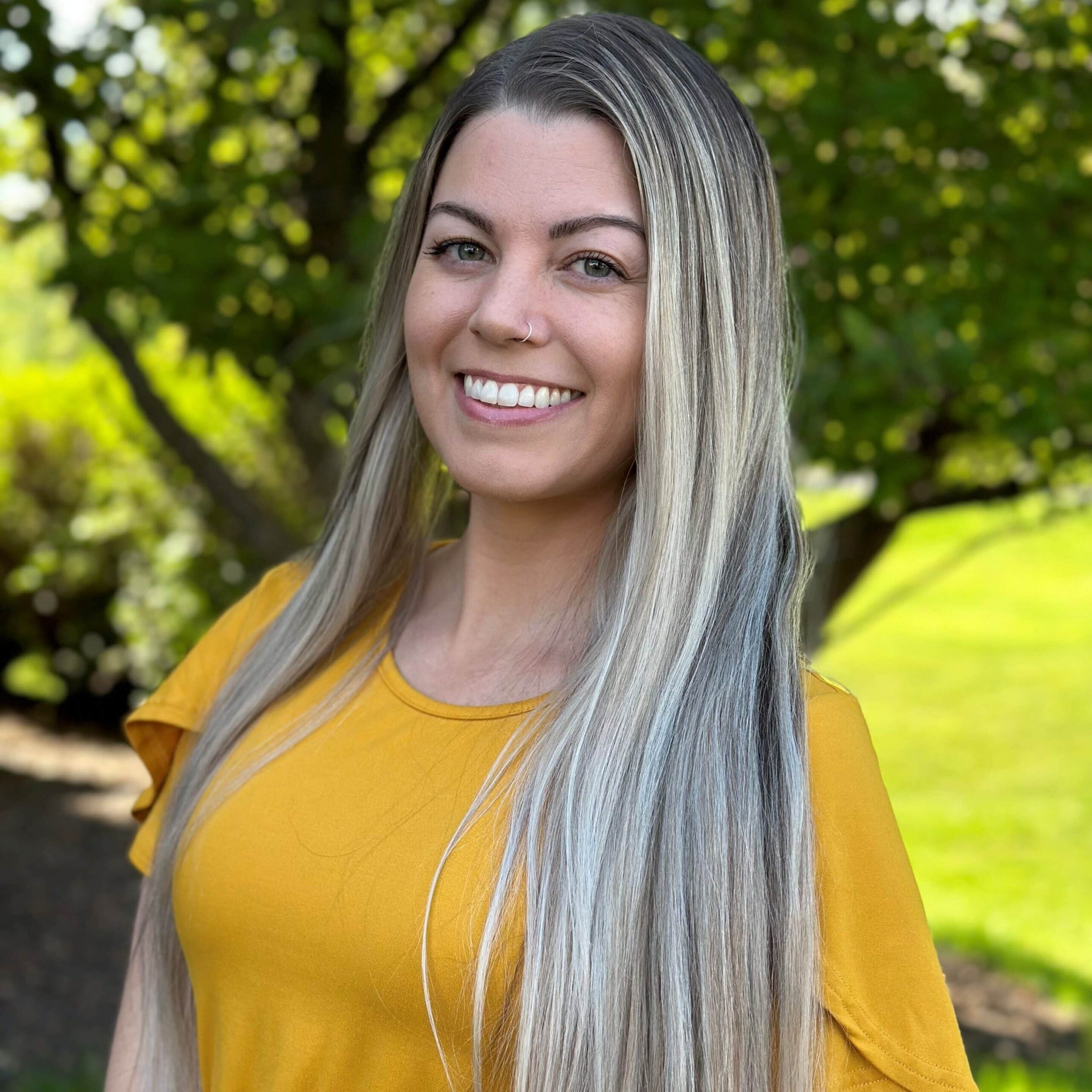- Creates a compassionate experience where clients feel both safe and empowered throughout the healing process.
- Utilizes a person centered approach that incorporates Attachment Theory, Exposure Response and Prevention Therapy, Strength-Based Therapy, and Dialectical Behavior Therapy.
- Experienced with OCD, anxiety, perfectionism, self-esteem, trauma, family dynamics, relationship issues, and narcissistic abuse recovery.
- Passionate about helping clients gain insight in order to fully understand and accept themselves.
- Devoted to collaborating with clients to ensure they are getting what they need from our sessions and continuing to evaluate what they need for themselves outside of session.

Emily Taylor, LPC
Licensed Professional Counselor
Pronouns: She/Her/Hers
“Your feelings are valid and worth sharing. We all deserve to feel seen and heard. I value the privilege of getting to explore what makes someone unique and the life experiences that have shaped them into who they are.”
Emily is a Licensed Professional Counselor in Illinois who is passionate about helping individuals feel seen and heard as they navigate their healing process. She believes that everyone deserves a safe and non-judgmental space to share their story. Emily is dedicated to understanding the unique experiences that shape each individual.
Emily’s approach to therapy begins with a holistic lens, uncovering each client’s unique qualities and identities. This allows her to tailor the therapeutic experience using various evidence-based treatment modalities:
Person-Centered Therapy (PCT) is a client-centered approach where the therapist strives to understand the client’s experience from their perspective. It is based on the belief that each person has the innate ability to change and grow, despite life experiences or struggles.
Cognitive Behavioral Therapy (CBT) is an evidence-based approach that challenges negative thoughts and distortions in thinking. By identifying these patterns, Emily works with clients to change them, improving feelings and behaviors.
Exposure Response and Prevention Therapy (ERP) is a type of CBT involving gradual confrontation of thoughts, images, objects, and situations that drive fears and obsessions. ERP aims to prevent engagement in rituals and compulsive behaviors, leading to long-term anxiety reduction.
Dialectical Behavior Therapy (DBT) is a CBT approach that helps clients recognize a both/and perspective rather than an either/or perspective. The basis of DBT is acceptance and change, achieved through learning new skills.
Behavioral Activation is a CBT-related skill examining how behaviors influence emotions. It involves engaging in activities that have been avoided to “activate” positive emotions, suggesting that action precedes emotion.
Emily is a graduate of The Chicago School of Professional Psychology, where she earned her Master’s degree in Counseling Psychology in 2020. She received her undergraduate degree in Arts from Columbia College Chicago in 2015.
Emily has experience working with individuals, adults, adolescents, families, and groups. She has worked primarily with patients in partial hospitalization programs and intensive outpatient programs, allowing her to confidently identify safety concerns and at-risk patients. She has gained crisis stabilization and de-escalation skills working with emotionally dysregulated clients. Emily has also worked with families to navigate relationship issues during sessions, led psychoeducation groups, process groups, parent coaching and support groups, and provided one-on-one therapy.
Emily has provided therapeutic treatment for concerns such as anxiety, OCD, perfectionism, substance use, trauma, depression, and personality disorders. She has also worked with parent support and guidance, generational trauma, and relationship issues, including setting and maintaining boundaries and improving communication.
In her free time, Emily enjoys soaking up all the cuddles she can with her son before he heads into his toddler years. She loves being a mama, values family time, and appreciates the small moments of being present together. Emily also binge-listens to audiobooks and podcasts while driving and going about her day. Before her training in the mental health field, she was a cheerleading and dance coach for many years. She earned her Bachelor’s degree in dance and continues to use movement such as dance, yoga, and exercise as a way to release stress. Through her experience coaching youth cheerleading and dance, Emily developed a passion for helping adolescents with family issues and other life stressors. She is excited to get to know you and begin the work together.
